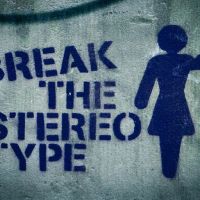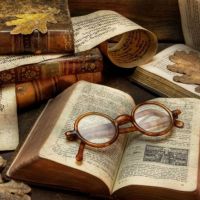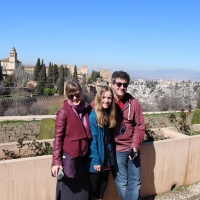At the latest meeting of the Nightlighter’s book club (aka best book club ever) we read Mary Oliver’s Why I Wake Early. It’s the first book of poetry our book club has read in the two years we’ve been meeting. It got mixed reviews.
 The lukewarm reception isn’t a reflection of Mary Oliver’s work or even a reflection of my book club, which is filled with intelligent, well-read women. I think it’s a reflection of the state of poetry.
The lukewarm reception isn’t a reflection of Mary Oliver’s work or even a reflection of my book club, which is filled with intelligent, well-read women. I think it’s a reflection of the state of poetry.
Why is there such a visceral, negative reaction to poetry in even the most intelligent people?
As one of the women in my book club noted, poetry is like Shakespeare, if it’s not taught properly, people will hate it forever.
I hate to blame educational institutions, but in this case, I think they share a large part of the blame.
The Problematic State of Poetry in the Education System
What’s the problem with how poetry is taught in schools? (Note: This is just opinion. I have no data to back up this theory, just experience. :))
First, most schools do not teach accessible poetry, at least not in my experience. They teach the dead white men. Frost. Longfellow. Whitman. The list goes on. While there is certainly something to be learned from these poetry pioneers, there’s also something to be learned from more modern poets.
Kids start out often loving poetry. Dr. Seuss and Shel Silverstein are extremely popular with children. But then comes the “serious” poetry and that love quickly fades away.
Second, when students are introduced to poetry, they’re taught there is a right and wrong way to read it.
 Instead of teaching readers to form their own opinions about poetry, it’s treated like most everything else in school. There is one way to read it. Period. Frost’s The Road Not Taken is about regret and what you didn’t do in life. It’s not about anything else your imagination might think of. It has only one interpretation and if you don’t understand that one interpenetration you don’t understand poetry.
Instead of teaching readers to form their own opinions about poetry, it’s treated like most everything else in school. There is one way to read it. Period. Frost’s The Road Not Taken is about regret and what you didn’t do in life. It’s not about anything else your imagination might think of. It has only one interpretation and if you don’t understand that one interpenetration you don’t understand poetry.
This approach makes many kids (i.e. future adults) feel inadequate and stupid. They look at a poem and think – I can’t understand this jumble of words so why should I try?
I think this is the wrong way to approach teaching poetry. Poetry is intensely personal both for the poet and the reader.
It wasn’t until college that I learned to enjoy poetry thanks to a college professor who gave us a poem and said, “Pick any stanza and tell me what it means. There is no right or wrong answer. If you tell me what you think it means and back it up with a compelling argument you will get an A.”
Even under those liberal instructions, I still struggled to complete the assignment. It took many tries until I figured out how to open up my mind and break the rigid structure of poetry I’d been taught during my pre-college schooling.
To enjoy poetry, I had to unlearn everything I’d been taught before.
My suggestions for learning to love poetry.
I am not special. If I can enjoy poetry, anyone can. After giving some thought to my approach, I’ve come up with 9 tactics I use to understand and enjoy poetry.
Caveat: Please note, I am no poetry expert.
1. Pick a piece of poetry you think you’ll enjoy.
If you’re new to poetry or trying to enjoy it again after it’s been ruined during your years in school, start with something that interests you. There are many modern poets who you might find more interesting than the traditional ones taught in schools. Find a poem or a poetry book on a topic that interests you.
2. Start with the title.
The title of a book and a poem can tell you a lot about a poem. For example, one of Mary Oliver’s poems is titled Breaking. She gave it that title for a reason. Breaking has many meanings. To take a break. To break open. To destroy. Before starting a poem think about the title as a little clue to help guide you while reading.
3. Write down the obvious.
Yes, I am suggesting ruining that book and scribbling in those margins. The first time you read a poem, just write down the obvious meaning of the poem. Is it a poem about waves breaking in the ocean? Then write that down. It may seem basic and simple. That’s OK. Like Shrek and onions, poems have layers. You have to start on the outermost before you can peel it back. You can’t start in the middle.
4. Pick one stanza.
Sometimes it’s helpful to start small. Pick one stanza that jumps out at you, even if you don’t know why. Use it as the basis for understanding the rest of the poem.
5. Ask yourself questions, but don’t answer them (yet).
Starting with your chosen stanza, ask yourself questions. Why were these specific words used? Does it focus on something sensory or an idea or an action? How does the stanza relate to the title?
6. Look at key words or repeating themes.
Are there certain elements the stanza or poem repeats? Are there key words that could give clues to the meaning or imagery?
7. Start answering some of your questions and make the answers personal.
Pick a single word that seems to repeat throughout the poem. For example, say the poem uses the word or imagery of sleep. What does it mean to me to sleep? It means to rest. Does the poem convey a sense of restfulness? Not really. What does it mean to me to sleep? It means to dream. Does the poem have a dream-like quality? Yes. Keep thinking like this, asking and answering questions for yourself.
8. Go down the rabbit hole.
Follow those questions and answers wherever they go. Let your mind wander and jump from thing to thing. Go down paths of ideas that seem ridiculous. They may lead somewhere great.
9. Stop searching for the right answers.
There is no right answer. It’s what the poem means to you. Forget what anyone else says or writes about it.
Is this approach the secret sauce for loving poetry?
I can’t guarantee this approach will work for you. The goal is to open your mind up and use poetry to understand yourself and the world around you. In the end, maybe your interpretation has nothing to do with the poet’s intent, but I’m doubtful any poet would be upset if someone found new meaning in their work.
If it helps, here are some poetry books I’ve been reading and enjoying lately, they range from what I would call more “story-like” to more traditional poetry approaches.
Story-like
The Princess Saves Herself in This One by Amanda Lovelace
Solo by Kwame Alexander and Mary Rand Hes
Brown Girl Dreaming by Jacqueline Woodson
More Traditional
Anne Sexton – Complete Works by Anne Sexton
The Wasteland by T.S. Eliot
Why I Wake Early by Mary Oliver
Happy end of National Poetry Month!











April 30, 2018 at 2:22 pm
I think, this is just my opinion, that parents today aren’t doing enough to be encourage and model good reading habits for their children.
LikeLiked by 2 people
April 30, 2018 at 3:40 pm
I completely agree! I think people would rather binge-watch Netflix or spend hours on FB than read a book. 😦 Not sure how to get people to rediscover the joy of reading….
LikeLiked by 1 person
April 30, 2018 at 5:42 pm
Let’s all start books and reading blogs and tell everyone how awesome it is
LikeLiked by 1 person
April 30, 2018 at 5:44 pm
Let’s model reading by getting rid of the TV’s in our homes and be the examples for others
LikeLiked by 1 person
April 30, 2018 at 4:51 pm
Your book club is so awesome! I read recently that Robert Frost’s famous poem has been WRONGLY interpreted over these many years.
I say, in total agreement with you, who cares?
If we’ve been inspired by a poem that was never meant to inspire, does that mean we should never have been inspired?
I also agree with you that schools should teach different poems and poets. Why not offer more that are fun and engaging?
LikeLiked by 1 person
April 30, 2018 at 4:58 pm
I know my book club is awesome. And that lady I quoted in my blog talking about poetry and Shakespeare is pretty smart. 🙂 People take poetry way too seriously. Just read it and think what you want! So much pressure to know if what you think is “right”! They’re just words.
LikeLike
May 1, 2018 at 3:40 am
TO UNDERSTAND POETRY YOU MUST GET INTO THE HEAD OF THE WRITER AND READ BETWEEN THE LINES, IT IS SOMETHING YOU ARE BORN WITH AND CAN’ BE LEARNED, CHINA ALEXANDRIA, POET AND AUTHOR
LikeLiked by 1 person